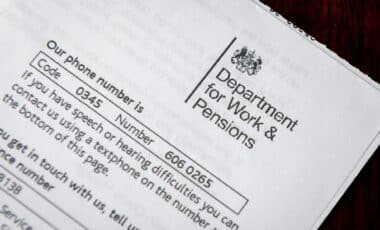The government has issued a stark three-month warning to millions of UK residents ahead of a major overhaul of the benefits system. By April, tax credits—a key financial support mechanism for many households—will begin to be phased out entirely, replaced by Universal Credit. This shift is part of an ongoing reform aimed at streamlining the benefits system, but it has left many scrambling to understand what the changes mean for their financial future.
For those affected, the government’s message is clear: act now, or risk losing vital support. The Department for Work and Pensions (DWP) is urging all tax credit recipients to transition to Universal Credit before their current payments stop. Those who miss the deadline risk severe financial disruptions.
What Is Changing and Why?
Tax credits, a long-standing benefit for low-income households, are being permanently replaced by Universal Credit. This new system consolidates multiple benefits into a single payment, aiming to simplify claims and improve efficiency. However, the transition has not been without its critics, as the sudden shift may leave vulnerable individuals struggling to adapt.
The government has explained the rationale behind the change, stating:
“Universal Credit is replacing tax credits. If you do not claim by the deadline date in that letter, your existing tax credits payments will stop, even if you have just renewed your tax credits claim.”
This means that even those who have recently renewed their tax credits must make the switch to Universal Credit to avoid losing their payments. Critics have raised concerns over the lack of clear communication and the logistical challenges faced by recipients, particularly those unfamiliar with the new system.
Key Dates to Remember
The deadline for transitioning to Universal Credit varies based on individual circumstances, but a key date looms large: April 2024. From this point onward, tax credits will no longer be paid to new claimants. A select few may continue receiving tax credits under special conditions, but these payments will cease entirely by 5 April 2025.
The DWP clarified:
“If you are claiming tax credits and are state pension age or over, the DWP or the Department for Communities will write to you to ask you to apply for Universal Credit or Pension Credit, depending on your circumstances.”
This statement highlights that even pension-age individuals are not exempt from the transition. Special provisions exist for those who are ineligible for Universal Credit or Pension Credit, allowing them to remain on tax credits temporarily. However, these cases are rare, and affected individuals are encouraged to contact the DWP for guidance.
Uncertainty and Anxiety Among Claimants
The impending changes have sparked anxiety among many tax credit recipients. With the cost of living crisis still placing strain on household budgets, the fear of losing essential support is palpable. A tax credit recipient from Manchester shared:
“I only found out about the deadline a month ago. It’s confusing, and I’m worried about how to make the switch. What if I lose out in the process?”
This sentiment is echoed by advocacy groups, who have called for greater support and clearer communication from the government. They warn that vulnerable groups, including the elderly and those with limited internet access, may struggle to navigate the online-based Universal Credit application system.
What Happens If You Miss the Deadline?
The stakes are high for those who fail to act in time. The DWP has made it clear:
“If you do not claim by the deadline date in that letter, your existing tax credits payments will stop.”
While some claimants may receive multiple reminders, the responsibility ultimately falls on individuals to ensure they meet the requirements. Those who delay risk facing a gap in their income, which could lead to financial hardship.
Not everyone will be eligible for Universal Credit, and for this small group, alternative arrangements will be made:
“A very small number of customers will not be eligible for Universal Credit or Pension Credit. These customers will be able to remain on and receive tax credits until April 5, 2025, unless a change in their circumstances ends tax credits sooner.”
The government has urged individuals unsure of their eligibility to seek advice immediately.
How to Make the Transition
Switching to Universal Credit involves several steps, beginning with creating an online account and submitting an application. The process requires detailed information about your financial situation, including income, savings, and living arrangements. For those who struggle with technology, assistance is available through Citizens Advice and dedicated DWP support lines.
The government is also providing guidance letters to ensure claimants understand their obligations. However, advocacy groups suggest the information provided may not be sufficient for those facing complex situations.









